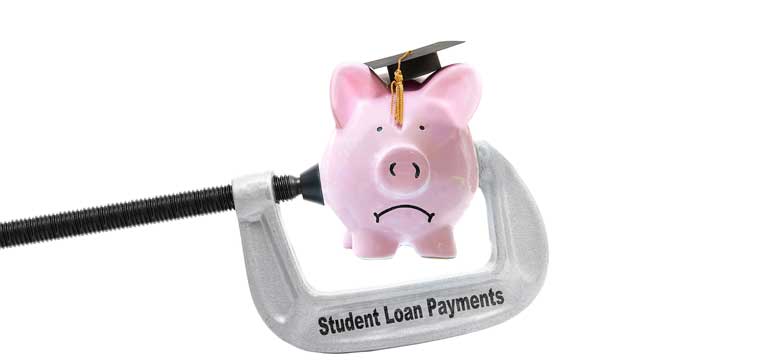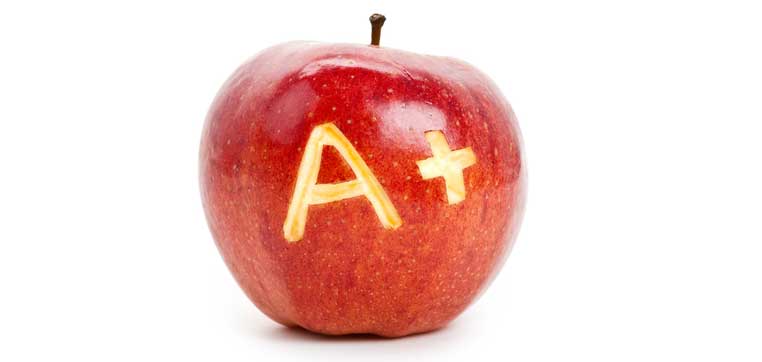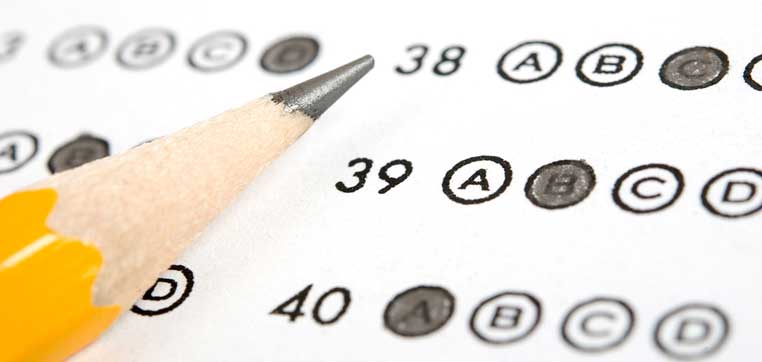 Given that paying for a college education now rivals buying a house, it isn’t surprising the New York Fed reports that “Balances of student loans have eclipsed both auto loans and credit cards, making student loan debt the largest form of consumer debt outside of mortgages.” Faced with limited financial aid and the prospect of the equivalent of a mortgage payment upon graduating from college, families can’t help but ask if “college is worth it?”
Given that paying for a college education now rivals buying a house, it isn’t surprising the New York Fed reports that “Balances of student loans have eclipsed both auto loans and credit cards, making student loan debt the largest form of consumer debt outside of mortgages.” Faced with limited financial aid and the prospect of the equivalent of a mortgage payment upon graduating from college, families can’t help but ask if “college is worth it?”
Does College Size Matter?
 As high school students get closer to graduation, you’re likely to hear declarations that I could never go to a college that small or I could never go to a college that big. Does college size really matter and, if so, matters for what?
As high school students get closer to graduation, you’re likely to hear declarations that I could never go to a college that small or I could never go to a college that big. Does college size really matter and, if so, matters for what?
So why would college size matter? Theoretically, you would think because it would influence the type of education opportunities available.
50-50 Highlights: A+ Colleges for B Students
 If you want to see everything available in the spreadsheet that I use to create the 50-50 list, check out the sample spreadsheet.
If you want to see everything available in the spreadsheet that I use to create the 50-50 list, check out the sample spreadsheet.
When we hear college rankings, we tend to think of a listing of the “best” colleges, especially since US News College Rankings helps us along with its rankings every fall. Yet, even US News recognizes that not everyone can get into the “best” colleges and these less qualified students are just as deserving of a quality education. So it has created its A+ Schools for B Students list.
50-50 Highlights: Accessible, Quality Colleges for Merit Aid Opportunities
 As I work with college data, I learn about different variables and add them to my data sets. I also occasionally create a variable to more accurately capture a concept or value that I think is important when trying to figure out how much college will cost. This is why you’ll see multiple posts on some variation of a list of colleges with the best financial aid. And because of the variation, you’ll always find some colleges on one list and not another. Well, I’m adding another list of colleges to consider for merit aid.
As I work with college data, I learn about different variables and add them to my data sets. I also occasionally create a variable to more accurately capture a concept or value that I think is important when trying to figure out how much college will cost. This is why you’ll see multiple posts on some variation of a list of colleges with the best financial aid. And because of the variation, you’ll always find some colleges on one list and not another. Well, I’m adding another list of colleges to consider for merit aid.
5 Simple Ways to Get Smart About the SAT, ACT, and Test Prep
 If you’re planning on applying to college, you need to get smart about the SAT, ACT, and test prep. Why? Because understanding college admissions testing allows you to make the right choices about which college admission tests to take, how to prepare for them, or if you should even take the tests at all. And remember that students with test scores in upper quartile of freshman test scores are likely to receive more generous merit aid.
If you’re planning on applying to college, you need to get smart about the SAT, ACT, and test prep. Why? Because understanding college admissions testing allows you to make the right choices about which college admission tests to take, how to prepare for them, or if you should even take the tests at all. And remember that students with test scores in upper quartile of freshman test scores are likely to receive more generous merit aid.
50-50 Highlights: Colleges with the Most Health Professions Majors
 According to the Bureau of Labor Statistics, the occupation that is projected to have the second largest number of new jobs between 2014 and 2024 requires only a bachelor’s degree and had a 2015 median pay of $67,490 per year. It’s not engineering or computer programing. It’s nursing.
According to the Bureau of Labor Statistics, the occupation that is projected to have the second largest number of new jobs between 2014 and 2024 requires only a bachelor’s degree and had a 2015 median pay of $67,490 per year. It’s not engineering or computer programing. It’s nursing.
What Makes an Ivy League Education?
 As I’ve been up dating my spreadsheet, I’ve been reviewing information on college quality and affordability. Looking through the data and how people use it has gotten me thinking about the latest attempts by the government to rate colleges, college rankings, and what makes a good education. As usual, I ended up with more questions than answers.
As I’ve been up dating my spreadsheet, I’ve been reviewing information on college quality and affordability. Looking through the data and how people use it has gotten me thinking about the latest attempts by the government to rate colleges, college rankings, and what makes a good education. As usual, I ended up with more questions than answers.
50-50 Highlights: Colleges Students Really Want to Go To
 Students may be accepted at ten colleges but they can only attend one. When they finally decide which school to attend, students become part of the college’s yield rate. The yield rate is the percentage of accepted students who actually end up attending the school. So you figure the yield rate for Harvard would have the highest rate around, right? Wrong. There are eight other schools with rates higher than Harvard’s 81% including the College of the Ozarks.
Students may be accepted at ten colleges but they can only attend one. When they finally decide which school to attend, students become part of the college’s yield rate. The yield rate is the percentage of accepted students who actually end up attending the school. So you figure the yield rate for Harvard would have the highest rate around, right? Wrong. There are eight other schools with rates higher than Harvard’s 81% including the College of the Ozarks.
What do College Baseball Coaches Want?
 Just before Christmas I shared some information from the College Baseball Profiles College Coaches survey and the importance of high school baseball–at least in New England. Today I want to point out some of the other survey results about college coaches and the baseball recruiting process.
Just before Christmas I shared some information from the College Baseball Profiles College Coaches survey and the importance of high school baseball–at least in New England. Today I want to point out some of the other survey results about college coaches and the baseball recruiting process.








